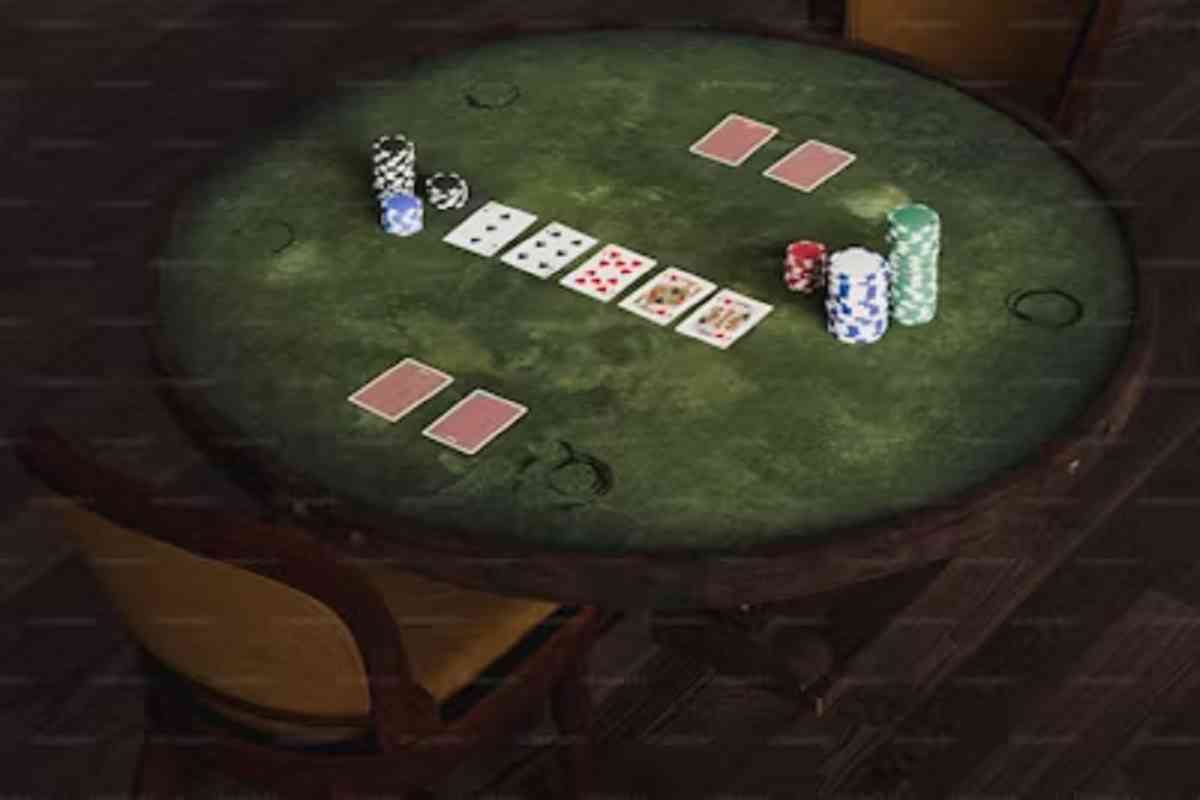Blackjack is a captivating card game that combines skill, strategy, and a little bit of luck. It’s a game that has been played for centuries, and its enduring appeal can be attributed to the thrill of challenging both the dealer and your own skills. In this comprehensive guide, we will explore essential strategies to help you succeed at the blackjack table.
Understanding the Basics of Blackjack
Before diving into strategies, it is essential to understand the fundamental aspects of blackjack. The game is typically played with one or more standard decks of 52 cards, and the objective is to beat the dealer by getting a hand value closer to 21 without going over. Each card has its own value: cards 2 through 10 are worth their face value, while face cards (Jack, Queen, King) are worth 10, and Aces can be worth either 1 or 11.
Players are dealt two cards and can choose to hit (take another card) or stand (keep their current hand). The game progresses with the dealer revealing their cards and determining whether they bust by exceeding 21. The simplicity of the game’s rules is one of the reasons it has become so popular.
In addition to the basic rules, players should also be aware of the concept of “blackjack,” which occurs when the initial two cards dealt to a player total 21, typically an Ace and a 10-value card. This hand usually pays out at 3:2, making it one of the most desirable outcomes in the game. Furthermore, the dealer must follow specific rules regarding when to hit or stand, often hitting on a total of 16 or less and standing on 17 or higher, which adds an extra layer of strategy for players to consider as they make their decisions.
Another important aspect of blackjack is the option to double down, which allows players to double their initial bet after receiving their first two cards, in exchange for committing to take only one additional card. This can be a powerful move when players feel confident in their hand, particularly against a dealer’s weak upcard. Additionally, some variations of the game introduce side bets, such as insurance, which allows players to bet on whether the dealer has a blackjack when their upcard is an Ace. Understanding these nuances can significantly enhance a player’s experience and potential success at the blackjack book.
Essential Rules Every Player Should Know
Understanding the rules is crucial for any blackjack player. Here are some of the essential rules:
- The game begins after each player places their bet.
- Players receive two cards, and the dealer also has two cards, one face-up and one face-down.
- Players can double down, splitting their hands if they have two cards of the same value.
- If a player’s hand exceeds 21, they bust and lose their bet.
- The dealer must stand on 17 or higher and hit on 16 or lower.
By familiarizing yourself with these rules, you will be better prepared to play strategically. Additionally, it’s important to understand the concept of “soft” and “hard” hands. A soft hand contains an Ace counted as 11, which provides more flexibility in hitting or standing without the immediate risk of busting. For example, if you have an Ace and a 6, you have a soft 17, allowing you to take another card without the fear of exceeding 21. Conversely, a hard hand does not include an Ace counted as 11, making it more vulnerable to busting if you take additional cards.
Another key aspect to consider is the importance of basic strategy charts, which provide guidance on the optimal moves based on your hand and the dealer’s visible card. These charts are derived from mathematical probabilities and can significantly improve your chances of winning. For instance, if the dealer shows a 6, a common strategy would be to stand on a hand of 12 or higher, as the dealer is more likely to bust. Understanding these nuances can elevate your game and provide a more enjoyable experience at the blackjack table.
The Importance of Bankroll Management
Effective bankroll management is crucial for successful blackjack play. One of the biggest mistakes players make is not setting a budget. A well-planned strategy involves knowing how much money you are willing to spend before starting a session. This not only helps in maintaining control over your finances but also allows you to enjoy the game without the stress of potential losses weighing heavily on your mind.
When managing your bankroll, consider the following:
- Set a loss limit to avoid spending more than you can afford.
- Set a win goal to help you decide when to walk away.
- Choose bet amounts proportional to your bankroll.
By adhering to a strict bankroll management plan, you can minimize losses and extend your play, increasing the chances of a favorable outcome. Additionally, it’s important to regularly reassess your bankroll strategy, especially after significant wins or losses. This reflection allows you to adjust your limits and goals based on your current financial situation and playing style, ensuring that you remain adaptable and responsive to the dynamics of the game.
Furthermore, understanding the variance in blackjack can significantly enhance your bankroll management approach. Blackjack is a game of skill and chance, and while you might have a solid strategy in place, the inherent unpredictability means that swings in your bankroll are inevitable. By recognizing this, you can prepare yourself mentally for the ups and downs, which helps in maintaining discipline and sticking to your pre-set limits. This mindset not only fosters a healthier relationship with gambling but also contributes to a more enjoyable gaming experience overall.
Basic Strategy: Maximizing Your Odds
One of the most effective ways to improve your chances of winning at blackjack is to implement basic strategy. This strategy involves making mathematically informed decisions based on your hand and the dealer’s visible card.
Some common scenarios that you may encounter include:
- If your hand is 8 or less, always hit.
- If you have a pair of Aces or 8s, consider splitting them.
- Stand if your hand value is 17 or more.
Utilizing these strategies allows players to make the best possible decisions based on statistical probabilities, ultimately leading to better outcomes in gameplay.
Advanced Techniques for Experienced Players
For those looking to enhance their skills further, advanced techniques can provide an additional edge. These methods require a deeper understanding of the game and often involve more complex decision-making.
Some of the advanced techniques include:
- Card counting: Tracking the ratio of high to low cards remaining in the deck to adjust betting strategies accordingly.
- Shuffle tracking: Observing the dealer’s shuffle to predict the location of high-value cards.
While these techniques can be highly rewarding, they also require significant practice and concentration to master. Players must be aware that using such techniques in casinos can be frowned upon and might lead to being asked to leave the premises.
Common Mistakes to Avoid at the Table
Even experienced players can fall victim to common mistakes that can hinder their game. Being aware of these pitfalls can help you maintain discipline and improve your play.
- Chasing losses: Trying to recover lost money can lead to reckless decisions.
- Failure to manage your bankroll: Not having a set budget can result in overspending.
- Making emotional decisions: Staying calm and rational while playing is essential for success.
By recognizing and avoiding these common mistakes, players can enhance their overall gaming experience and improve their results.
The Role of Psychology in Blackjack
The psychological aspect of playing blackjack is often underestimated. Understanding how both you and the dealer think can significantly impact your success.
Key psychological strategies include:
- Reading the dealer: Understanding the dealer’s behavior can offer insights into their strategies.
- Managing your own emotions: Keeping a level head enhances decision-making.
Developing a psychological edge over the game may help you maintain control and create opportunities in challenging situations.
Card Counting: Myths and Realities
Card counting is often seen as a secret weapon for winning at blackjack. However, it’s essential to understand its limitations and the reality behind this strategy.
While card counting can provide an advantage, it is by no means a guaranteed win. Some key points to consider include:
- Card counting requires an excellent memory and concentration.
- It can be difficult to employ effectively in a high-paced casino environment.
- Many casinos employ countermeasures to counteract card counters.
Understanding the myths and realities of card counting can help you determine whether or not to incorporate this technique into your gameplay.
Online vs
Online blackjack presents a different experience from traditional casino blackjack. The rise of online gaming has led to the emergence of various platforms, each offering unique features and gameplay options.
Considerations when choosing between online and traditional blackjack include:
- Convenience: Online blackjack allows you to play from home at any time.
- Variety of games: Many online casinos offer a broader range of blackjack variations.
- Bonuses: Online platforms often provide bonuses and promotions that can enhance your gameplay.
Ultimately, your choice will depend on your personal preferences and gaming goals.
Resources for Continued Learning and Improvement
To excel in blackjack, continuous learning and practice are key. Numerous resources are available to help you refine your skills and strategies:
- Books and articles on blackjack strategy provide in-depth analyses from experienced players.
- Online forums and communities allow players to share experiences and strategies.
- Practice apps and simulators can help you gain experience in a risk-free environment.
Investing time in these resources can lead to significant improvements in your gameplay, ultimately increasing your chances of success at the blackjack table.









